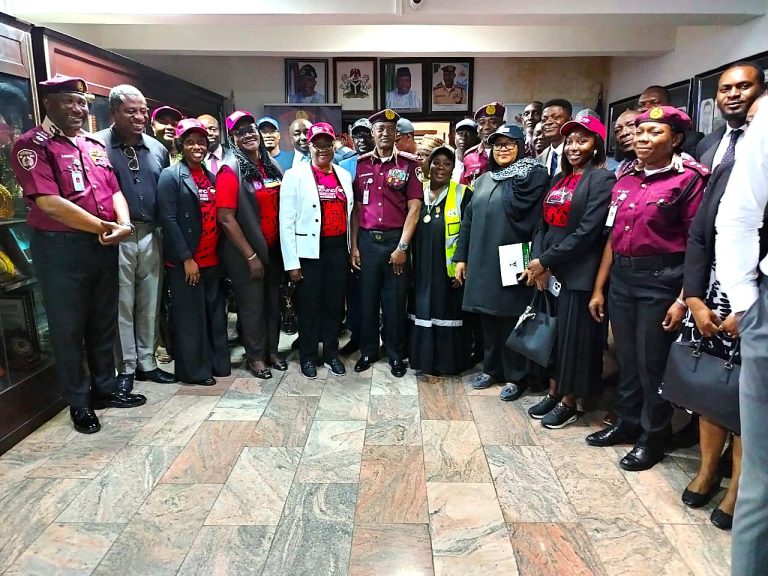Nigeria is set to host the first-ever International Road Crash Victims Africa Conference (IRCVAC) in November, marking a historic milestone in road safety advocacy on the continent. The conference aims to amplify the voices of victims of road traffic crashes (RTCs) and their families, who have long been overlooked in global discussions.
The announcement was made at a joint press briefing in Abuja by the Federal Road Safety Corps (FRSC) and the Kwapda’as Road Safety Demand (KRSD) Foundation.
The FRSC Corps Marshal, Malam Shehu Mohammed, explained that most global road safety conferences have historically focused on high-income countries, giving little attention to Africa’s unique challenges.
He said the Abuja conference would change that narrative by spotlighting the experiences of crash victims across the continent.
“The aim of this conference is to bring together technocrats, experts, and professionals in road safety, transport management, accident response, and crash injury prevention. Abuja will serve as the center where Africa and the world converge to push for better outcomes for victims,” Mohammed said.
The Corps Marshal praised President Bola Ahmed Tinubu’s administration for supporting initiatives that improve citizens’ welfare, stressing that the conference will serve as an international platform to showcase Nigeria’s leadership in road safety advocacy.
Mohammed further noted that road crash victims—especially women and children often suffer the greatest consequences.
Also Read
Living on Minimum Wage : Smart Tips to Survive, Save, and Build Wealth
How Online Dating Has Revolutionized the Way We Fall in Love
Future of Immersive Entertainment Experiences 2026
“Many children lose parents to accidents and are left abandoned, uncared for, or forced to drop out of school. Some even end up on drugs. This conference is about giving them a stronger voice and putting their plight at the heart of global road safety discussions,” he emphasized.
Justice Monica Dongban-Mensem, founder of the KRSD Foundation, explained that the conference theme, Gathering Africa and the World for Road Crash Victims, reflects its focus on uniting diverse stakeholders to address the impact of crashes.
She established the foundation in memory of her late son on September 30, 2011, and said the upcoming conference coincides with KRSD’s 14th anniversary, reinforcing its mission of road safety advocacy across Africa.
“This conference is the first dedicated African platform for victims of road crashes and their families. It will bring together governments, private organizations, civil society groups, victims’ associations, and the global road safety community to take decisive action in reducing fatalities and injuries,” Dongban-Mensem said.
To create public awareness and foster solidarity, a series of pre-conference events has been scheduled to begin on November 15. These include cycling, walking, and golfing activities designed to promote healthier lifestyles and safer mobility while honoring the memories of crash victims.
Citing the **World Health Organization’s 2023 Global Status Report on Road Safety, Dongban-Mensem revealed that Nigeria has one of the highest road traffic death rates globally—21.4 deaths per 100,000 people. This is significantly above both global and African averages.
She stressed that urgent measures are needed to combat the leading causes of crashes, including over-speeding, drunk driving, and the non-use of seatbelts and helmets.
Further data from the National Bureau of Statistics (NBS) showed that in the last quarter of 2023 alone, 5,081 road crashes were recorded, leading to 2,466 deaths and 15,535 injuries.
Similarly, the FRSC’s first quarter 2024 report documented 2,733 crashes, resulting in 1,624 fatalities and 8,279 injuries.
“These numbers are not just statistics. They represent families torn apart, breadwinners lost, and lives permanently altered,” Dongban-Mensem emphasized.
The International Road Crash Victims Africa Conference is expected to mark a turning point for the continent’s approach to road safety. By centering the conversation on victims and survivors, the event will highlight the human face behind the numbers and mobilize stronger policies for safer roads.
With Nigeria hosting this historic gathering in Abuja, it sets the stage for Africa to play a more central role in shaping global strategies to reduce road fatalities and injuries.



